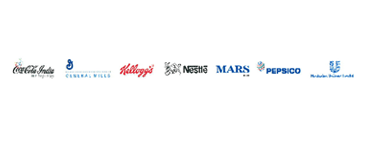Seven major food and beverage companies have announced their commitment to market responsibly to kids. The voluntary self-regulation also provides a framework for food and beverage companies to help promote healthier dietary choices and a more active lifestyle to Indian children. This is in addition to the existing ASCI Code for Self Regulation in Advertising.
The seven companies who have signed on the pledge so far are: Coca-Cola India Inc, General Mills India Private Limited, Kellogg India Private Limited, Nestlé India Limited, Mars International India Private Limited, PepsiCo India Holdings Private Limited and Hindustan Unilever Limited.
Under the India Pledge, participating companies will make individual commitments on food and beverage advertising to children. They will each develop and publish a company action plan, which will be subject to monitoring and review. The seven participating companies are committing to implement, by 31 December 2010, company-specific voluntary measures on food and beverage advertising to children. They include the following minimum standards:
• No advertising food and beverage products to children under the age of 12 on TV, print or the internet, except for products that fulfill specific nutrition criteria based on accepted scientific evidence and/or applicable national and international dietary guidelines. For this pledge, “advertising to children under 12 years” means advertising to media audiences where at least half are children under the age of 12.
• No engaging in any commercial communications related to food and beverage products in primary schools, except for products that fulfill specific nutrition criteria based on accepted scientific evidence and/or applicable national and international dietary guidelines, or where specifically requested by or agreed by the school administration for educational purposes.
• Commissioning an independent compliance monitoring of the advertising commitment on TV, print media and the internet, starting in January 2011.
No more tall claims in food and beverage advertising for kids
Seven major food and beverage companies have announced their commitment to market responsibly to kids. The voluntary self-regulation also provides a framework for food and beverage companies to help promote healthier dietary choices and a more active lifestyle to Indian children. This is in addition to the existing ASCI Code for Self Regulation in Advertising.




